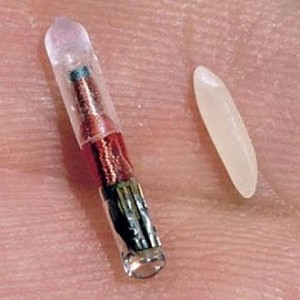#rfid devices
Text
How LibrarySoftware Works in the Library
Library Automation Software is the use of automatic and semi-automatic library activities as acquisition, cataloging, and circulation. It is a very fast emerging technology which has changed the system of the library.
Read More : http://www.elibrarysoftware.com/what-online-library-management-system.html
#library management software#digital library#library#rfid devices#library software#covid-19#coronavirus#online learning
1 note
·
View note
Link
Smart Mobile POS supply the best quality Audio Jack NFC Reader at the best prices in UK. Smart Mobile POS offers mobile and wireless solutions using the latest technology products. To buy now, visit our website!
0 notes
Link
It is estimated that by the end of 2020 there will be more than 23 billion connected devices in the healthcare industry. Know more about some benefits of IoT in healthcare.
#IoT#Healthcare Industry#RFID Devices#Remote Patient#Monitoring Systems#Preemptive Care#Regular Checkup#Inventory Management
0 notes
Text
RFID devices in wagons, coaches and locomotives
RFID devices in wagons, coaches and locomotives
RFID devices in wagons, coaches and locomotives
Prabhu will propose that RFID devices be used for freight maintenance management, locomotive management, coach maintenance management and fuel management systems so as to ensure more effective and transparent functioning.
Using RFID devices, it will be easier for Railways to know the exact position of wagons, locomotives and coaches and also the…
View On WordPress
0 notes
Text
RFID Devices Widely Used, But Do They Provide Too Much Information?

Photo courtesy of Wikimedia Commons and in the public domain
Just a few years ago, in the early 2000s, it seemed like everybody was talking about radio frequency identification (RFID) technology and how it was going to change the face of retail, manufacturing and many other industries.
Now, more than a decade later, RFID is widely used in an enormous amount of applications, but has the technology lived up to those futuristic expectations?
The answer may be that the bar for RFID was set too high, according to Michael Fein, senior product manager for RFID at Zebra Technologies, a leading manufacturer of RFID devices.
“People had unfair expectations that it could change the world in a couple of years,” Fein told Modern Materials Handling. “But if you look at the technology adoption curve, RFID is not at all behind. I’d say the technology is doing fantastically well.”
Rapid RFID Market Growth
The market for RFID devices is certainly on the rise, up from $7.88 billion in 2013 to an estimated $9.2 billion in 2014. And industry analysts predict sales will triple over the course of the next 10 years.
RFID devices currently are being implanted in everything from clothing to heavy equipment to consumer electronics — essentially anywhere a bar code has been used in the past. Because they emit a tiny radio signal, they provide information technology that can be connected directly to the Internet so that products can be tracked anywhere on the supply chain, from manufacturing straight through to end-user.
Most people aren’t even aware that RFID devices are contained in many of the products they use every day. And that’s just how the makers of these devices would like it to stay. Just ask Alan Melling, senior director of strategy and software at Motorola Solutions, another big RFID maker.
“What will drive adoption in the long term is the Trojan horse idea,” Melling said. “When tags are in place because one part of the supply chain sees the value, the technology becomes more appealing for others to collect data because the required investment is much less. There’s an opportunity to leverage an investment that someone else has already paid for.”
Heightened Sensitivity to Privacy Issues
Still, in the wake of the National Security Agency spying scandal — in which government investigators allegedly gathered information on civilians secretly using mobile devices, microphones and camera built into laptops, and other 21st Century technology — some people are becoming more concerned about continued infringement upon personal privacy. Allowing the factory that made your shoes or your smart phone to track where you are all the time could be seen as the further erosion of personal privacy.
The question today is not whether RFID technology will be used, but how will the information it collects be used?
Su Doyle, head of industry programs for OATSystems, a division of RFID maker Checkpoint, said some industries are publicizing their use of RFID technology while others are trying to keep it hidden.,
“In the past four years, RFID use cases have centered on customer-facing processes in both retail and industrial markets,” Doyle said. “But I think it’s interesting that aerospace and defense firms are talking about their successes with RFID while many retailers are much more secretive about the competitive advantages they’ve gained.”
These are all challenges that will need to be grappled with as industry begins to understand the benefits of RFID and awareness is raised that the devices allow others to track and record the activities of product owners.
0 notes
Link
#library management software#library management system#librarysoftware#rfid software#rfid devices#covid-19#coronavirus#breaking news
1 note
·
View note
Text
Why you Need RFID Technology in your Library
RFID is the growing technology adopted by most of the academic world. RFID is also known as advanced library system software. It reduces the workload of the librarian to a great extent.
RFID the library management system is easy and convenient to use. A user can easily find the book in the library with the help of RFID tags attached to books and take the help of an RFID scanner to find the books in the library.
The Growing Demand for RFID System
The demand of an RFID system is growing with time and advancement of technology. It has completely replaced the traditional system of the library. It is used in schools, universities, institutions and many other places. Library management system based on RFID can easily manage the large database or collection available in the library.
Read More : https://bit.ly/3amZPXO
1 note
·
View note